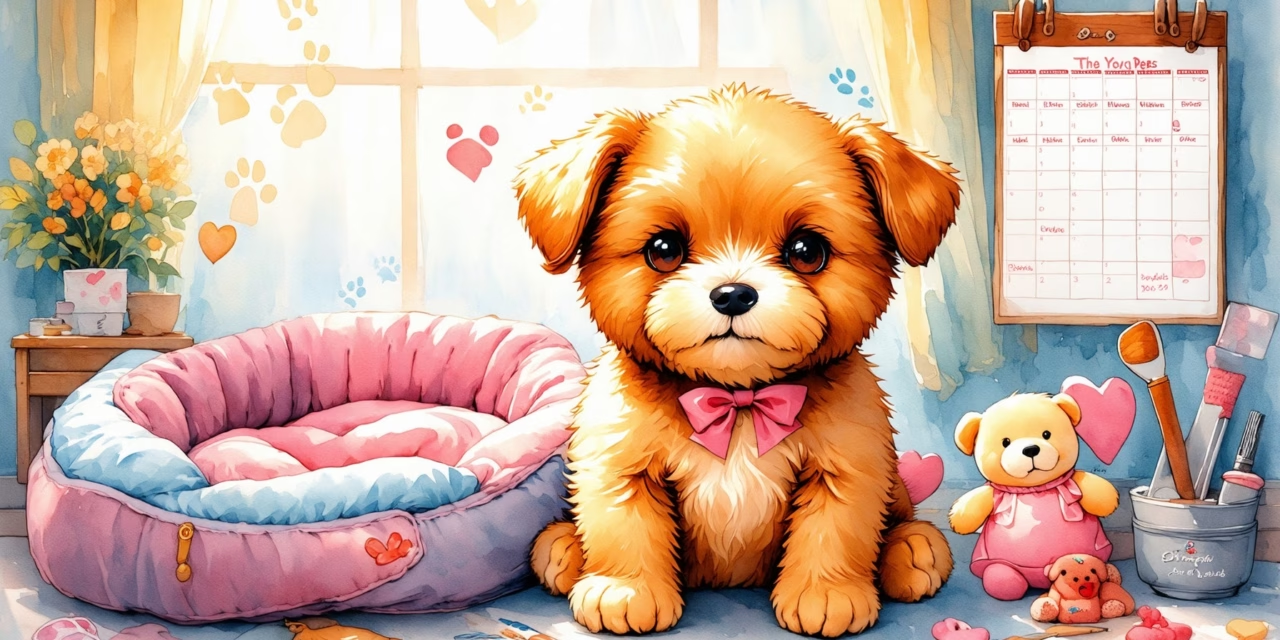Key Takeaways
- Popular Breeds: Teddy bear dogs include adorable breeds like Shih Tzu, Bichon Frise, and Maltese, known for their charming, cuddly appearances.
- Affectionate Companions: These dogs are characterized by their friendly nature, making them excellent companions for families and individuals.
- Low Maintenance Exercise: Most teddy bear breeds require low to moderate exercise, making them ideal for busy lifestyles.
- Grooming Needs: Regular grooming is essential to keep their coats healthy and free from tangles, with professional grooming recommended every 4-6 weeks.
- Cost Considerations: Teddy bear puppies can cost between $500 to $2,000, depending on breed, location, and breeder reputation.
- Health Awareness: Be aware of common health issues like dental problems and patellar luxation; regular vet check-ups are crucial for prevention.
- Adoption Benefits: Adopting a teddy bear dog not only saves a life but often comes with lower costs and the potential for already trained pets.
Welcome to our comprehensive guide on the teddy bear dog, a beloved companion known for its adorable appearance and charming personality. In this article, we will explore everything you need to know about this delightful teddy bear breed, including the various teddy bear dog breeds, their average lifespan, and essential care requirements. Whether you’re curious about the grooming needs of these fluffy friends or wondering how much a teddy bear puppy costs, we’ve got you covered. We’ll also delve into their barking behavior, common health issues, and the benefits of adopting a teddy bear dog. By the end of this article, you’ll have a well-rounded understanding of what it means to welcome a teddy bear breed puppy into your home, ensuring you’re fully prepared for the joys and responsibilities that come with it.
Overview of Teddy Bear Dog Breeds
The term “teddy bear dog” refers to several dog breeds that possess a cute, cuddly appearance reminiscent of a teddy bear. Here are some of the most popular breeds classified as teddy bear dogs:
- Shih Tzu: This breed is renowned for its long, flowing coat and friendly disposition. Shih Tzus have a compact body and a sweet face, making them a favorite among dog lovers. Their affectionate nature and adaptability to various living situations contribute to their popularity.
- Bichon Frise: With its soft, curly white coat, the Bichon Frise is another breed that fits the teddy bear description. Known for their cheerful personality and playful demeanor, these dogs are also hypoallergenic, making them suitable for allergy sufferers.
- Maltese: The Maltese is a small breed characterized by its long, silky white coat. They are known for their gentle and affectionate nature, making them excellent companions. Their playful and lively personality adds to their teddy bear appeal.
- Toy Poodle: While Poodles come in various sizes, the Toy Poodle is often considered a teddy bear dog due to its small stature and curly coat. They are highly intelligent and trainable, making them a popular choice for families.
- Zuchon (Shih Tzu x Bichon Frise): This crossbreed, also known as the “Teddy Bear” dog, combines the best traits of both parent breeds. Zuchons are known for their friendly and affectionate nature, as well as their adorable appearance.
These breeds not only embody the teddy bear look but also offer companionship and joy to their owners. For those considering adding a teddy bear dog to their family, it’s essential to research each breed’s specific needs and characteristics to ensure a good match.
Characteristics of Teddy Bear Breeds
Teddy bear breeds are known for their charming characteristics that make them appealing to dog lovers. Here are some key traits:
- Affectionate Nature: Teddy bear dogs are typically very loving and enjoy being around their families. Their friendly demeanor makes them great companions.
- Small Size: Most teddy bear breeds are small, making them suitable for apartment living and easy to handle.
- Low to Moderate Exercise Needs: While they enjoy playtime, many teddy bear dogs do not require extensive exercise, making them ideal for busy owners.
- Hypoallergenic Coats: Breeds like the Bichon Frise are known for their hypoallergenic coats, which can be a significant advantage for allergy sufferers.
Understanding these characteristics can help potential owners choose the right teddy bear breed puppy that fits their lifestyle and preferences.

What breed of dog is a teddy bear?
Overview of Teddy Bear Dog Breeds
The term “teddy bear dog” refers to a variety of small dog breeds that have been bred to resemble the cuddly appearance of a teddy bear. Typically, these breeds include mixes such as the Shih Tzu, Bichon Frise, and Poodle, among others. The most common teddy bear breed puppy is a cross between a Shih Tzu and a Bichon Frise, known for its adorable looks and friendly demeanor. These teddy bear dog breeds are popular for their affectionate nature, making them excellent companions for families and individuals alike.
Characteristics of Teddy Bear Breeds
Teddy bear dogs are characterized by their soft, fluffy coats and round faces, which contribute to their teddy bear-like appearance. They are generally small in size, making them suitable for apartment living. Here are some key characteristics:
- Temperament: Teddy bear dogs are known for their friendly and playful nature. They are typically good with children and other pets, making them ideal family dogs.
- Coat: The coats of teddy bear breeds are often hypoallergenic, which is a significant advantage for allergy sufferers. Regular grooming is essential to maintain their fluffy appearance and prevent matting.
- Intelligence: These dogs are usually intelligent and eager to please, which makes training relatively easy. Positive reinforcement methods work best with teddy bear dogs.
- Activity Level: While they enjoy playtime, teddy bear dogs do not require excessive exercise. Short daily walks and interactive play sessions are sufficient to keep them happy and healthy.
Are Teddy Bear Dogs High Maintenance?
Teddy bear dogs, often a crossbreed of Poodles and other small breeds like Shih Tzus or Bichon Frises, can indeed be considered high maintenance due to several factors:
- Grooming Needs: Their soft, fluffy coats require regular grooming to prevent matting and tangles. Professional grooming every 4-6 weeks is often recommended, along with daily brushing to maintain coat health. For more information, visit the American Kennel Club.
- Exercise Requirements: Teddy bear dogs are typically energetic and need daily exercise to stay healthy and happy. This includes walks, playtime, and mental stimulation through interactive toys or training sessions. Aim for at least 30 minutes of exercise each day, as suggested by PetMD.
- Training and Socialization: Early training and socialization are crucial for teddy bear dogs to ensure they develop good behavior and social skills. Consistent, positive reinforcement training methods are most effective. Engaging with a professional trainer can be beneficial, according to the Association of Professional Dog Trainers.
- Health Considerations: Like many small breeds, teddy bear dogs can be prone to certain health issues, such as hip dysplasia and dental problems. Regular veterinary check-ups and a balanced diet are essential for their well-being, as noted by Veterinary Partner.
- Emotional Needs: These dogs thrive on companionship and can experience separation anxiety if left alone for extended periods. They often require a significant amount of attention and affection from their owners, as highlighted by the American Kennel Club.
In summary, while teddy bear dogs are affectionate and make great companions, they do require a commitment to grooming, exercise, training, and emotional support. Understanding these needs can help potential owners prepare for the responsibilities involved in caring for these lovable pets.
Grooming Needs of Teddy Bear Dogs
The grooming needs of teddy bear dogs are one of the primary reasons they are considered high maintenance. Their coats, which are often soft and fluffy, require regular attention to prevent tangles and mats. Here are some key points regarding their grooming:
- Daily Brushing: To keep their coats healthy and free from tangles, daily brushing is essential. This helps to remove loose hair and prevents matting.
- Professional Grooming: Scheduling professional grooming every 4-6 weeks is recommended to maintain the teddy bear cut, which is a popular hairstyle for these breeds.
- Bathing: Regular baths are necessary to keep their coats clean and fresh. Use a gentle dog shampoo to avoid skin irritation.
- Ear Cleaning: Regular ear cleaning is important to prevent infections, especially since teddy bear dogs can be prone to ear issues.
By adhering to a consistent grooming routine, owners can ensure their teddy bear dogs look their best while also maintaining their overall health.
Daily Care Requirements for Teddy Bear Breeds
In addition to grooming, teddy bear dogs have specific daily care requirements that must be met to ensure their well-being:
- Exercise: As mentioned earlier, these dogs require at least 30 minutes of exercise each day. This can include walks, playtime, and interactive games that stimulate their minds.
- Nutrition: Providing a balanced diet tailored to their size and age is crucial. Consult with your veterinarian to determine the best food options for your teddy bear dog.
- Social Interaction: Teddy bear dogs thrive on companionship. Daily interaction with their owners and opportunities to socialize with other pets are essential for their emotional health.
- Training: Consistent training sessions help reinforce good behavior and strengthen the bond between the owner and the dog. Positive reinforcement techniques are particularly effective.
By meeting these daily care requirements, owners can ensure their teddy bear dogs remain happy, healthy, and well-adjusted companions.
How Much Do Teddy Bear Puppies Cost?
Teddy Bear puppies, a popular designer breed known for their adorable appearance and friendly temperament, typically range in price from $500 to $2,000. The cost can vary significantly based on several factors:
- Breeder Reputation: Reputable breeders who prioritize health testing and responsible breeding practices may charge higher prices. It’s essential to research breeders and ensure they are recognized by organizations like the American Kennel Club (AKC).
- Location: Prices can fluctuate based on geographical location. For instance, urban areas with higher demand may see increased prices compared to rural regions.
- Pedigree and Health Testing: Puppies with champion bloodlines or those that have undergone extensive health screenings may command higher prices. Health testing can include evaluations for common breed-specific issues, ensuring a healthier puppy.
- Age and Size: Younger puppies or those that are smaller in size may also be priced higher due to their desirability.
- Market Trends: The popularity of Teddy Bear puppies can influence pricing. As demand increases, prices may rise accordingly.
When considering the purchase of a Teddy Bear puppy, it’s crucial to factor in not only the initial cost but also ongoing expenses such as food, grooming, and veterinary care. For more detailed insights into responsible pet ownership and wellness, resources like the American Kennel Club and the ASPCA can provide valuable information.
Where to Find Teddy Bear Puppies for Sale
Finding a Teddy Bear puppy for sale can be an exciting journey. Here are some reliable avenues to explore:
- Reputable Breeders: Look for AKC-registered breeders who specialize in teddy bear breeds. They often provide health guarantees and detailed information about the puppy’s lineage.
- Pet Adoption Websites: Websites like Petfinder can connect you with local shelters and rescues that may have Teddy Bear dogs available for adoption.
- Local Pet Shows: Attending pet shows can be a great way to meet breeders and see the puppies in person. This also allows you to ask questions and learn more about the breed.
- Online Marketplaces: Platforms like Craigslist or Facebook Marketplace may have listings for Teddy Bear puppies, but exercise caution and ensure you verify the seller’s credibility.
By exploring these options, you can find a Teddy Bear puppy that fits your lifestyle and brings joy to your home.

What are the health issues with teddy bear dogs?
Teddy bear dogs, known for their adorable appearance and friendly demeanor, can be prone to certain health issues that potential owners should be aware of. Understanding these common health problems is essential for ensuring a long and healthy life for your furry friend.
Common Health Problems in Teddy Bear Breeds
The health issues faced by teddy bear breeds can vary depending on their specific lineage. Here are some common health problems associated with teddy bear dogs:
- Dental Issues: Many teddy bear breeds, such as the Maltese and Bichon Frise, are susceptible to dental problems due to their small mouths. Regular dental care, including brushing and professional cleanings, is crucial.
- Patellar Luxation: This condition, where the kneecap dislocates, is common in small breeds. It can lead to pain and mobility issues, requiring veterinary intervention.
- Allergies: Teddy bear dogs may develop allergies to food or environmental factors, leading to skin irritations and discomfort. Identifying and managing these allergies is vital for their well-being.
- Hip Dysplasia: Some teddy bear breeds can suffer from hip dysplasia, a genetic condition that affects the hip joint. Regular vet check-ups can help monitor this condition.
Preventive Care for Teddy Bear Dogs
To mitigate health risks, preventive care is essential. Here are some tips for maintaining the health of your teddy bear dog:
- Regular Vet Visits: Schedule annual check-ups with your veterinarian to catch any potential health issues early.
- Balanced Diet: Provide a nutritious diet tailored to your teddy bear dog’s specific needs. Consult your vet for recommendations on high-quality dog food.
- Exercise: Regular physical activity is crucial for maintaining a healthy weight and preventing obesity-related health issues.
- Grooming: Regular grooming not only keeps your teddy bear dog looking cute but also helps in identifying skin issues or parasites early.
By being proactive about your teddy bear dog’s health, you can ensure they lead a happy and fulfilling life. For more information on caring for your teddy bear dog, explore our blog for tips on pet care.
Teddy Bear Dog for Adoption
Finding a teddy bear dog for adoption can be a fulfilling experience, especially for those looking to provide a loving home to these adorable companions. Many shelters and rescue organizations have teddy bear breeds available, and adopting one can be a rewarding way to bring joy into your life while giving a dog a second chance.
Finding Teddy Bear Dogs for Adoption
To locate teddy bear dogs for adoption, consider visiting local animal shelters or rescue groups that specialize in small breeds. Websites like Petfinder allow you to search for teddy bear puppies and adult dogs in your area. Additionally, many teddy bear breeders may also have dogs in need of homes due to unforeseen circumstances. Always ensure that the organization or breeder is reputable and prioritizes the health and well-being of their animals.
Benefits of Adopting a Teddy Bear Dog
Adopting a teddy bear dog comes with numerous benefits:
- Saving a Life: By adopting, you are giving a homeless dog a chance at a better life.
- Cost-Effective: Adoption fees are generally lower than purchasing a teddy bear puppy from breeders, and many shelters include vaccinations and spaying/neutering in the fee.
- Companionship: Teddy bear dogs are known for their affectionate nature, making them great companions for individuals and families alike.
- Health Benefits: Many shelters conduct health screenings, ensuring that the dogs are healthy and ready for adoption.
For more information on adopting pets, visit Petfinder or check out our blog for tips on pet care and wellness.
Teddy bear dog for adoption
Finding Teddy Bear Dogs for Adoption
Adopting a teddy bear dog can be a rewarding experience, as these affectionate companions often find themselves in need of loving homes. To start your search, consider visiting local animal shelters or rescue organizations that specialize in small breeds. Websites like Petfinder provide a comprehensive database of dogs available for adoption, including various teddy bear breeds. You can filter your search by location, breed, and age to find the perfect match. Additionally, reaching out to teddy bear dog breeders may lead to opportunities for adopting retired breeding dogs or puppies that didn’t meet breed standards.
Benefits of Adopting a Teddy Bear Dog
Adopting a teddy bear dog comes with numerous benefits. Firstly, you provide a second chance to a dog in need, contributing to the reduction of pet overpopulation. Teddy bear dogs are known for their friendly and gentle nature, making them excellent companions for families and individuals alike. Moreover, many adopted dogs are already house-trained and may have some basic obedience training, which can ease the transition into your home. Additionally, adopting from a shelter or rescue often comes at a lower cost compared to purchasing a teddy bear puppy from breeders, making it a financially savvy choice. By choosing to adopt, you not only gain a loving pet but also support the mission of animal welfare organizations.













